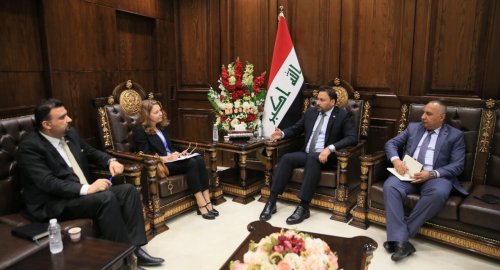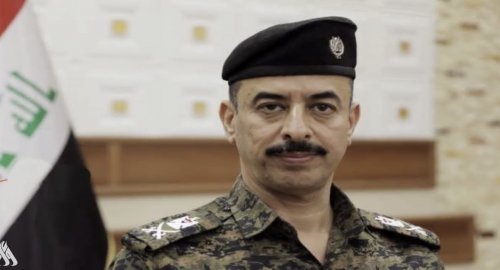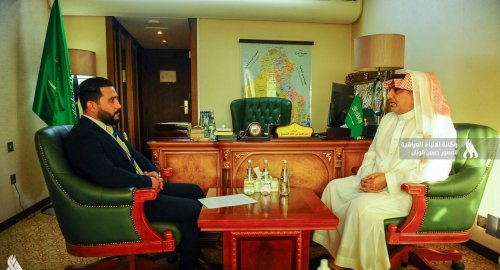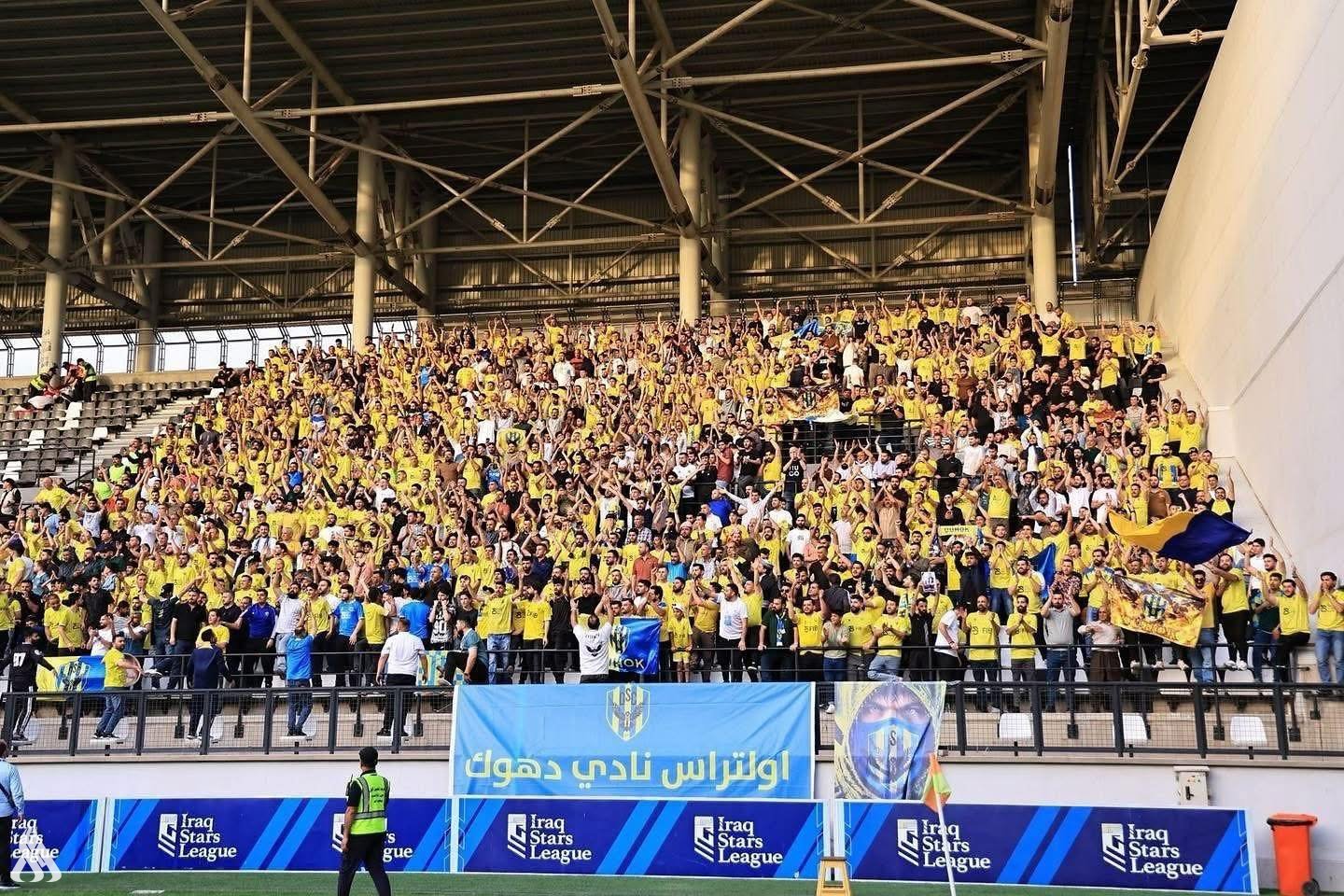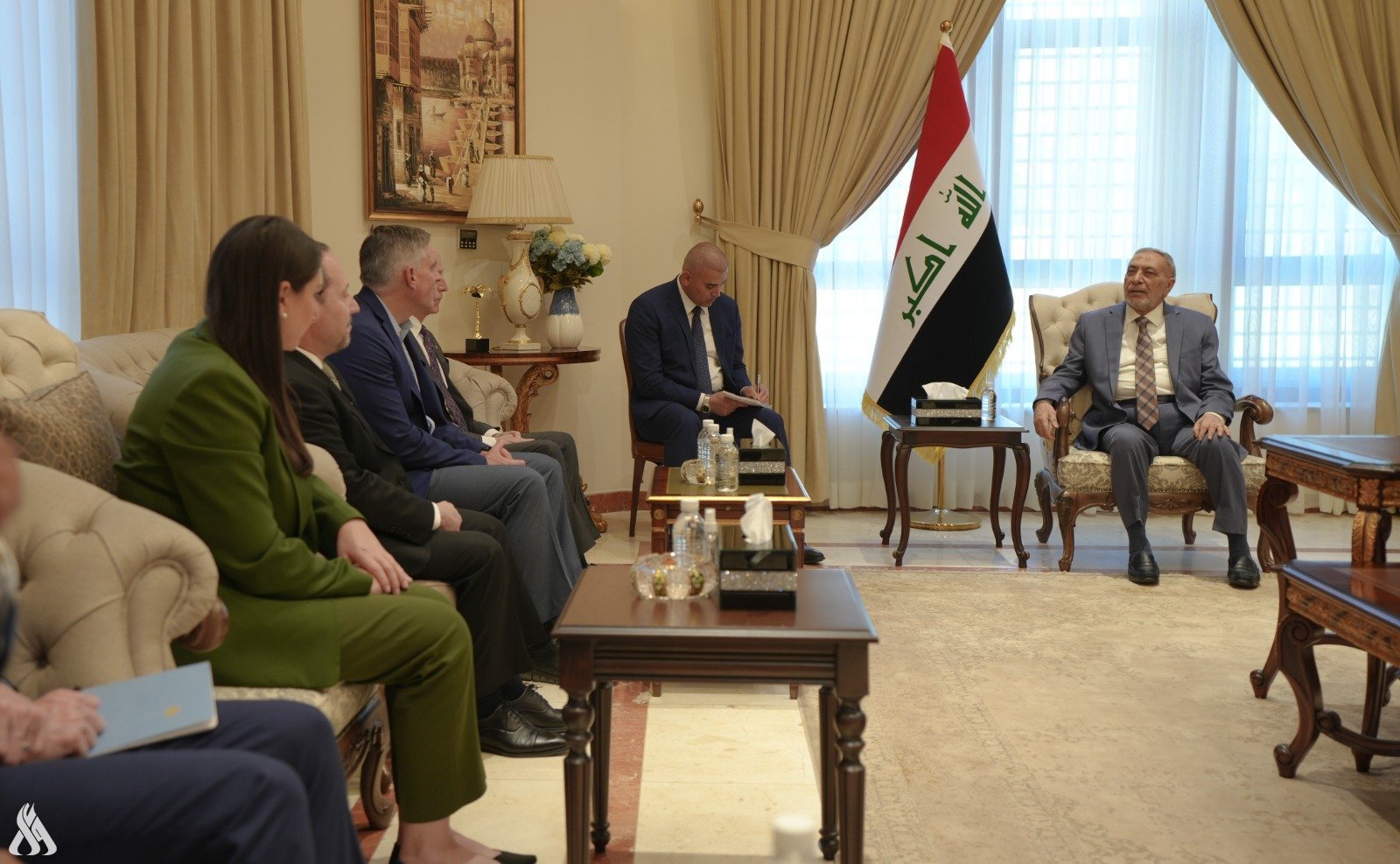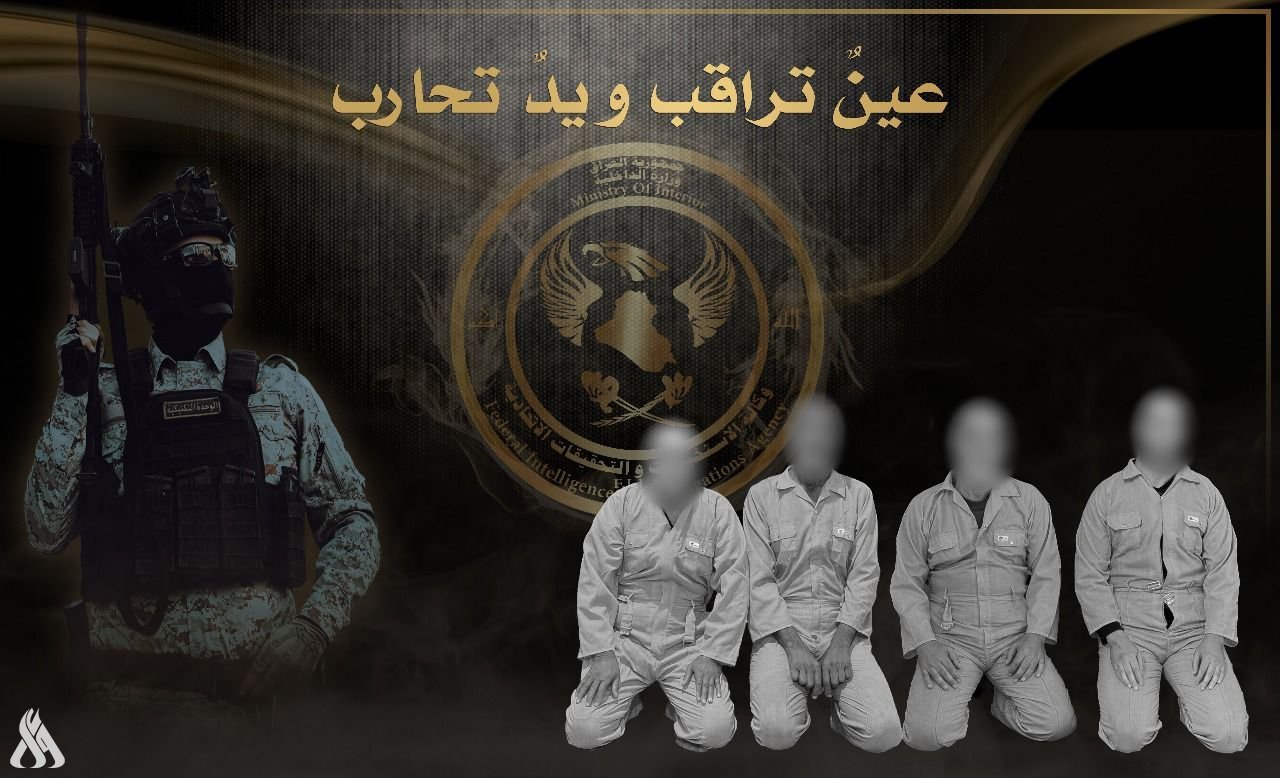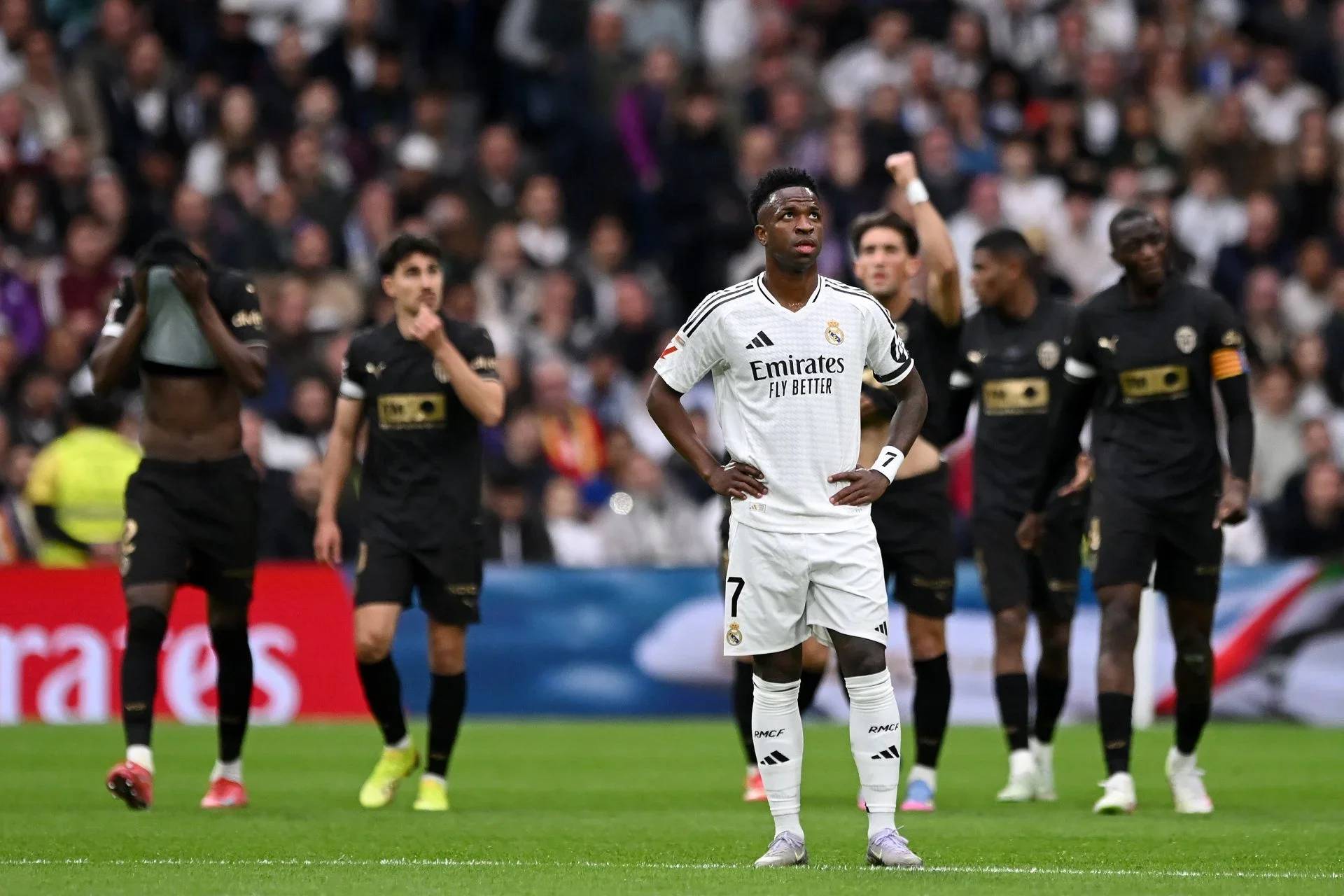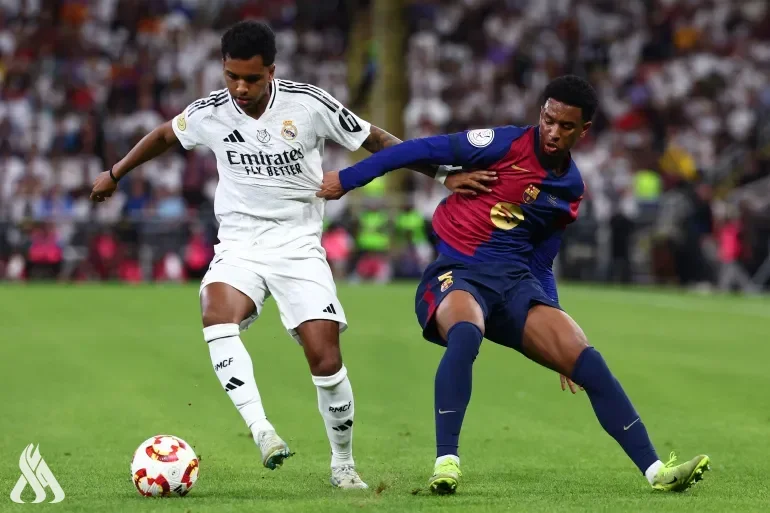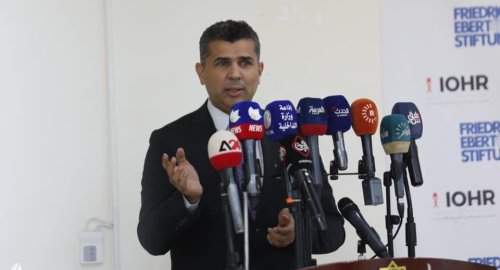
Official statistic: The Iraqi News Agency topped the highest readings in the October elections

- 3-12-2021, 11:30
Baghdad-INA
The Iraqi Observatory for Human Rights released on Friday, its report on the media discourse to the media during the election period, noting that "the Iraqi News Agency (INA) has high readings during the elections.
The Director of Relations and Information at the Ministry of Interior and head of the Security Media Cell, Major General Saad Maan, said in a speech during a press conference attended by the reporter of the Iraqi News Agency (INA): "The media sub-committee that was within the Supreme Elections Committee worked for months before the elections within all the security formations," affirming that the last election were the least in terms of hate speech, sectarianism, slander, blackmail and others if they were compared to the elections that were held in previous years."
Maan added that "The anti-rumor department at the Ministry of Interior worked for 24 hours in cooperation with the monitoring departments of the Ministries of Interior and Defense and other security services to give accurate information quickly after verifying its authenticity, even if it is a fake document that is verified and corrected."
"Hotlines lines were provided over 24 hours. Our doors were opened to all media outlets on botvate and public voting days. We cooperated with the Media and Communications Commission, the Journalists' Syndicate, and with all media outlets," Maan affirmed.
In turn, the Director of the Iraqi Observatory for Human Rights, Mustafa Saadoun, said in a speech during the conference: "The legislative elections came after a major turning point in Iraq as a result of the October protests, indicating that the media was not far away from this change of the last two years, nor was it just an observer of what was happening, but it was part of the problem sometimes”
He explained that "Most of the Iraqi media outlets are classified as non-independent and funded by political parties, or armed and religious groups, as well as officials in the executive and legislative authorities."
Saadoun added that "the monitoring report of the Iraqi Observatory for Human Rights team covered the Iraqi media for the elections during the period from September 10 to October 10, pointing out that" 1,863 news stories and 47 television hours were monitored through a study that included coverage of 14 satellite channels and 10 news agencies considered the most prominent, or the most active in covering local news, including state-funded media and others affiliated with political parties, as well as armed groups and officials in the Kurdistan region”.
He added that "The observatory relied on media monitoring mechanisms in accordance with international and local standards that document every information provided in the report, and worked to not divert attention from any institution active in covering the Iraqi legislative elections, regardless of their orientation," noting that "the task of choosing news channels and sites was very difficult, however, and to fill this gap, the researchers of the Iraqi Observatory for Human Rights held several meetings and made contacts with civil society organizations, journalists, writers and students in the media department to identify the channels and websites that may be the most-watched and influential in Iraqi society".
Saadoun pointed out that "the observatory team concluded that the news sites that have the highest readings are ten, one of which is the Iraqi News Agency (INA)," explaining that "some of these sites have different political and ideological backgrounds, some of them adopts an Islamic discourse and others supports the authority , while some other are secular".
Saadoun indicated that "the observatory team concluded that the satellite channels that receive the attention of the Iraqi viewer are 14 satellite channels," noting that satellite channels, like other media outlets, many of them are involved in direct political agendas related to the financiers, and this matter appeared clearly in the Legislative elections.
"This study seeks to tighten control over the media because of its importance in any democracy, especially developing democracies. It also tries to draw attention to the importance of adhering to the ethical and professional standards of media, regardless of the political agenda of the financiers," he also mentioned.
Iran: Second round of talks with US to be held in Rome
- International
- 04:41
Duhok of Iraq and Qadsia of Kuwait match kicks off
- Sport
- 25/04/15
Four Daesh terrorists detained in Salahuddin
- Security
- 25/04/14
Vinicius is harshly criticized by Real Madrid fans
- Sport
- 25/04/12
Date Set for 'El Clasico' Final of the Copa del Rey
- Sport
- 25/04/12
